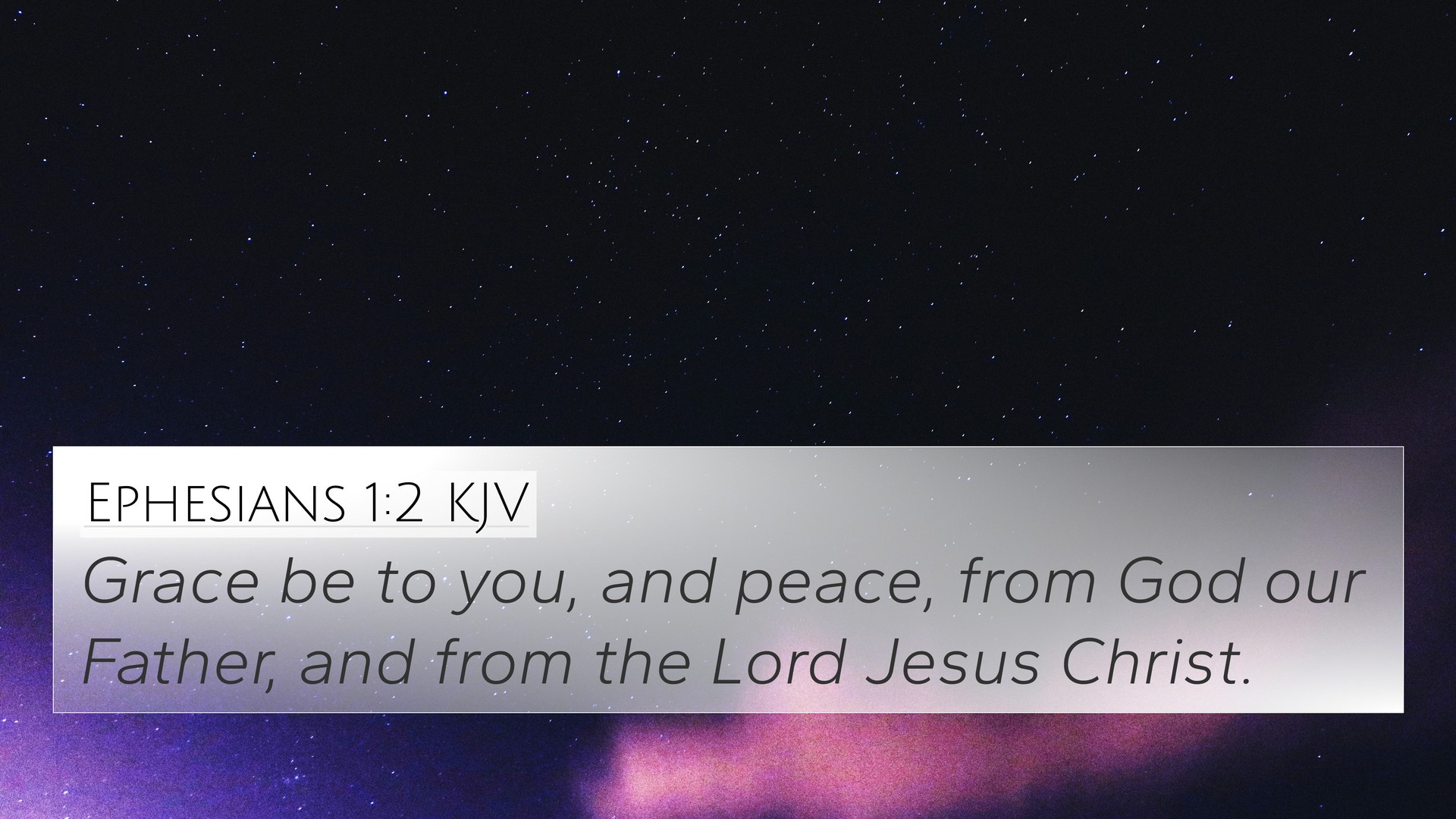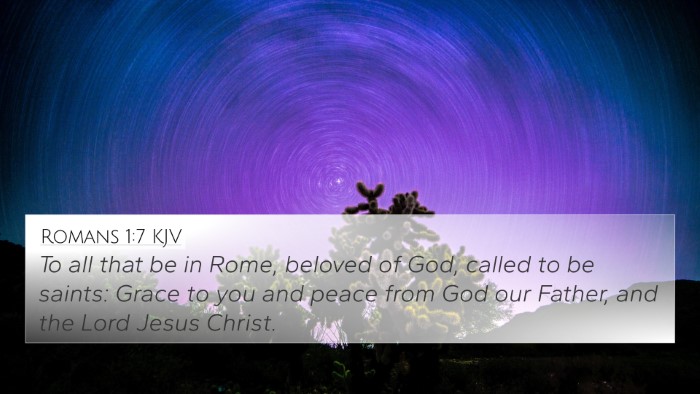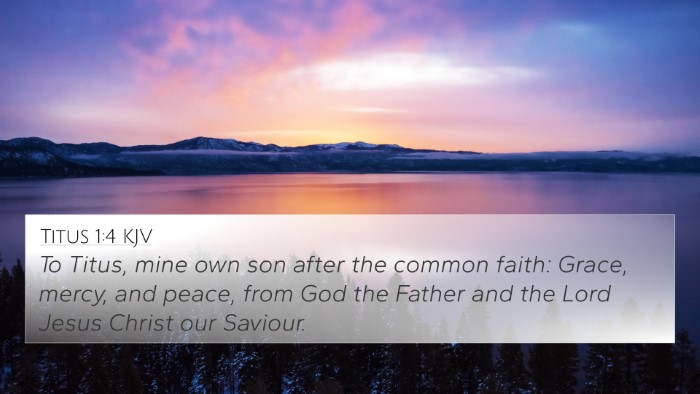Ephesians 1:2 - Meaning and Interpretation
Ephesians 1:2 states: "Grace be to you, and peace, from God our Father, and from the Lord Jesus Christ."
Context and Overview
The Apostle Paul addresses the church in Ephesus, a significant location in early Christianity. In this salutatory verse, Paul extends blessings of grace and peace, foundational concepts of Christian theology.
Combined Insights from Public Domain Commentaries
Grace and Peace Explained
Matthew Henry emphasizes that grace reflects God's favor towards believers, highlighting the unmerited nature of this gift. Paul opens with grace as it undergirds the Christian experience and relationship with God.
Albert Barnes notes that peace serves as the consequence of experiencing God's grace. Peace here represents both an internal tranquility stemming from salvation and a harmonious relationship with God.
Adam Clarke elaborates that both grace and peace are gifts that flow from God the Father and the Lord Jesus Christ, underscoring the unity and co-divinity of the Father and the Son in Christian doctrine.
Theological Insights
Paul’s introduction is significant as it sets the tone for the entire epistle. By invoking grace and peace, Paul is not only offering a common greeting but also a deep theological statement on the nature of salvation.
Cross-References to Ephesians 1:2
- Romans 1:7 - "Grace to you and peace from God our Father and the Lord Jesus Christ."
- 2 Corinthians 1:2 - "Grace be to you and peace from God our Father, and from the Lord Jesus Christ."
- Philippians 1:2 - "Grace be unto you, and peace, from God our Father, and from the Lord Jesus Christ."
- Colossians 1:2 - "To the saints and faithful brethren in Christ which are at Colosse: Grace be unto you, and peace, from God our Father and the Lord Jesus Christ."
- 1 Peter 1:2 - "Elect according to the foreknowledge of God the Father, through sanctification of the Spirit, unto obedience and sprinkling of the blood of Jesus Christ: Grace unto you, and peace, be multiplied."
- Titus 1:4 - "To Titus, mine own son after the common faith: Grace, mercy, and peace, from God the Father and the Lord Jesus Christ our Saviour."
- Revelation 1:4 - "John to the seven churches which are in Asia: Grace be unto you, and peace, from him which is, and which was, and which is to come."
Thematic Connections
The themes of grace and peace recur throughout the New Testament, signifying their importance in establishing the identity of Christian belief. Each mention reinforces the connection between God's grace, salvation, and the peace that believers derive from their relationship with Him.
Connections Between Bible Verses
Cross-referencing these verses shows a pattern in Paul’s greetings, highlighting his emphasis on grace and peace as prerequisites for spiritual growth and community harmony. These links establish an important theological framework.
Comparative Bible Verse Analysis
By comparing Ephesians 1:2 with other Pauline letters, we can analyze how Paul’s message remains consistent across various communities. Each reference highlights the foundational role of grace in the believer's life.
Practical Applications
This verse invites believers to experience and extend grace and peace within their communities. Understanding the depth of these words encourages a lifestyle reflective of Christ’s teachings.
Tools for Bible Cross-Referencing
For deeper study, one may utilize a Bible cross-reference guide, Bible concordance, or access comprehensive Bible cross-reference materials to explore the connections between these texts further.
Conclusion
Through Ephesians 1:2, Paul encapsulates essential Christian beliefs with a blessing that resonates throughout the epistles. It reminds believers of the gracious heart of God and the peace that follows the acceptance of this grace.






